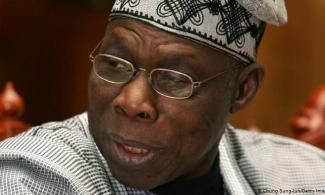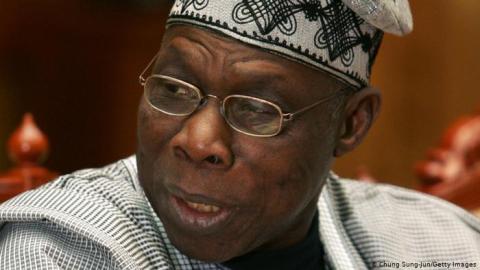
Obasanjo had visited the family house of late Mohammed Yusuf, the founder of Boko Haram sect in Maiduguri, Borno State.
Former President Olusegun Obasanjo has narrated the encounter he had with Boko Haram members in 2011.
Obasanjo had visited the family house of late Mohammed Yusuf, the founder of Boko Haram sect in Maiduguri, Borno State.

The visit however ended on a bloody note with the murder of Babakura Fugu, the man who received him, and attempted to establish a link between the insurgents and the former President.
Fugu, a brother-in-law of Yusuf, was shot to death shortly after Obasanjo left his home in Maiduguri, the Borno Stat capital, where he had flown to for the meeting.
The effort was not at the instance of the Nigerian government, officials said at the time.
Speaking at the 2022 annual lecture of the Murtala Muhammed Foundation (MMF) on Monday, Obasanjo criticised the Nigerian government’s response to the group, saying the government failed to act quick enough in taking the fight to Boko Haram.
He said the group did not have external connection at the time he met with them but the poor handling on the part of the government made the crisis to go out of hand.
“We are not going anywhere until we take national building seriously; justice and equity. We must build a society where everyone feels it has a stake. The insecurity in the country was caused as a result of the ease to access weapons and since then we have been unable to address the issue; it keeps getting worse.
“In 2011 when Boko Haram was just rearing its ugly head, I went to Maiduguri to try and find out a little bit more about Boko Haram and to also find out what their objective was apart from being interested in Sharia, they also complained that their followers had no job and, in their effort, get something legitimate efforts to help their members.
“In the process the government started chasing them and gunning them down. What I feared at that time seemed to have been happening at that time, Boko Haram had not much external connections then; the ones they had would be Nigerians who had resources abroad, who were helping them.”